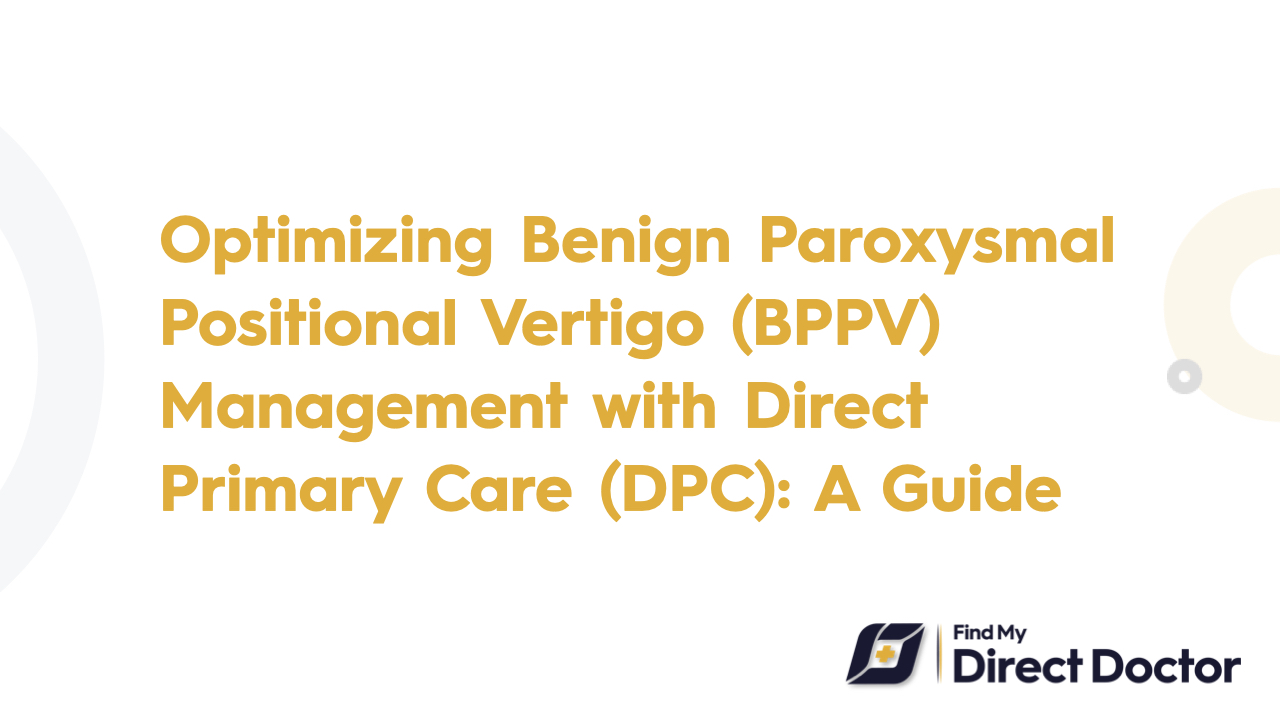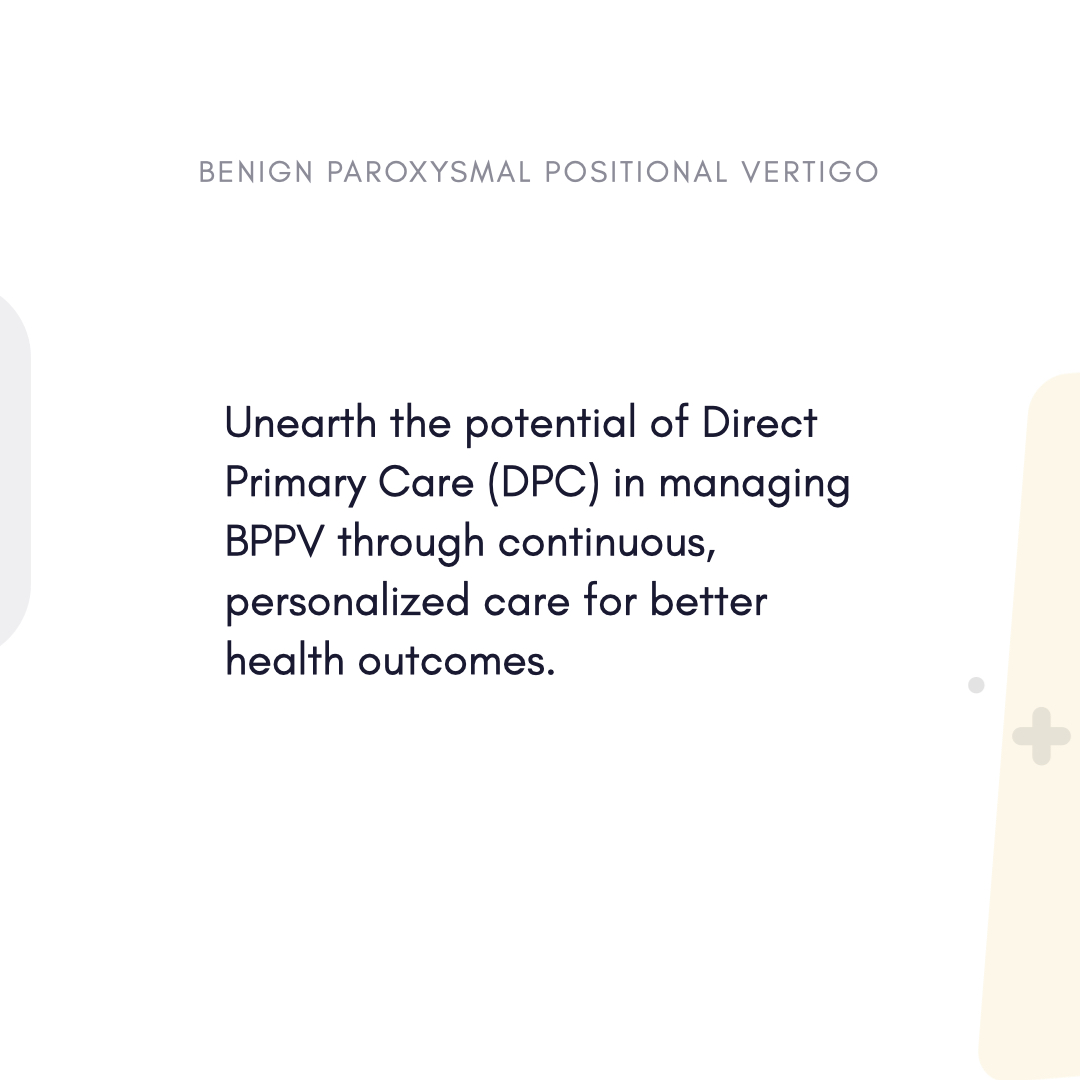Direct Primary Care (DPC) for Benign Paroxysmal Positional Vertigo (BPPV): Fast, Effective Relief Close to Home
Dislodged inner ear crystals (otoconia) cause Benign Paroxysmal Positional Vertigo (BPPV), which causes sudden, strong spinning sensations with head movements. Though not harmful, BPPV disrupts daily life and increases fall risk. Direct Primary Care (DPC) offers a streamlined, patient-centered approach for efficiently diagnosis, treat, and prevent BPPV free from delays or insurance hassles.

Quick Diagnosis and In-Office Treatment
- Initial Evaluation:
- Same-day visits: See sudden vertigo right away to confirm BPPV or rule out neurological issues.
- To find nystagmus—eye motions—and pinpoint impacted ear canals during the visit, do this gold-standard diagnostic maneuver called the Dix-Hallpike Test.
- Evidence-based refining:
- Epley movement: First-line treatment advised by clinical guidelines guides displaced crystals back to their correct location, so minimizing symptoms in minutes.
- Customize methods for semont, Gufoni Maneuvers, horizontal canal BPPV or recurrent cases.
- Managing Conditions:
- Short-term medications: Write meclizine or anti-nausea prescriptions for acute vertigo relief.
- Fall Preventive Strategy: To help to prevent injuries, advise home safety tips including slow head turns and nightlights.
Personalized BPPV Management: DPC
- Care Home-Based Plans:
- Teach patients modified Epley or Brandt-Daroff exercises to manage recurrentities on their own.
- See physical therapists for vestibular rehabilitation—that is, balance training—in chronic cases.
- Prevention Based on Root Causes:
- On Risk Factor Screening, look for osteoporosis, vitamin D shortage, migraines, or past head trauma linked to BPPV.
- Talk about stress, sleep hygiene, or water intake to reduce recurrence risks in changing lifestyle.
- Ongoing Vigilance:
- Retesting with Dix-Hallpike and reassessment of symptoms after treatment will help to ensure resolution.
- See ENT doctors or neurologists for atypical or refractory BPPV presentations.
Why DPC Excels in BPPV Treatment?
- Relief corresponds to speed:
- Not weeks but rather hours; same-day access guarantees diagnosis and Epley maneuver—essential for rapid symptom relief.
- Reasonably Costful Medical Treatment:
- There are none of referral delays: Simple BPPV cases call for avoiding expensive specialist visits.
- Usually covering follow-up, repositioning, and discounted imaging (e.g., MRI to rule out stroke), membership fees also pay for
- Instruct patients in recognizing recurrence symptoms and completing home exercises with confidence.
- To reduce crystal displacement risk, treat dietary deficiencies—such as vitamin D—or osteoporosis.
The DPC Advantage for Continuum of BPPV Patients
- Regular visits help preventative actions and track recurrence rates (up to 50% in five years).
- Less Anxiety: Direct discussion with your doctor will help you to calm down regarding unplanned vertigo episodes.
- Tailor treatment for high-risk groups (such as elderly, post-concussion patients).
Final Thought
While in-office maneuvers rapidly alleviate BPPV's disruptive vertigo, recurrence is not rare. Combining same-day treatment, preventative plans, and patient education—DPC's proactive approach offers long-term relief and peace of mind.






